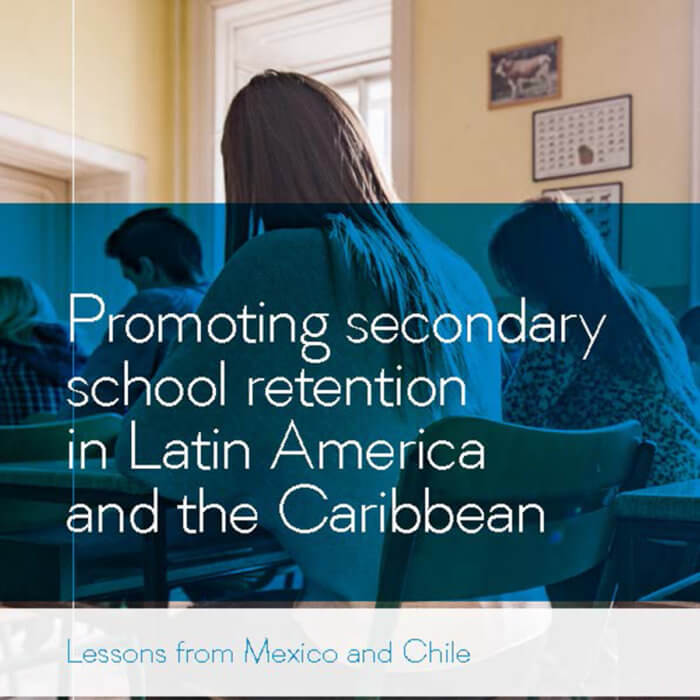Results for Development (R4D) has released a new study aimed at helping key decision-makers in Latin America and the Caribbean design and implement strategies to increase retention rates in secondary schools. The study includes four case studies on programs in Mexico and Chile and valuable lessons about what works and what doesn’t that can be applied to other countries at different points in their developmental trajectories, with different decentralization and governance models.
Although most countries in the region have achieved universal primary education — and made significant strides in increasing access to secondary education — the upper secondary school completion rate is only 59 percent in Latin America and the Caribbean. The high level of secondary school dropout is concerning and has significant economic short- and long-term implications for the region. Students who drop out of school may not obtain the skills needed to contribute productively to the economy and are more likely to work in the informal economy or be unemployed.
This study, Promoting Secondary School Retention in Latin America and the Caribbean: Lessons from Mexico and Chile, provides practical recommendations on how decision-makers in Latin America and the Caribbean region can counter this challenge. In addition, the study includes an exploration of how country responses can take a gender-sensitive or gender-transformative approach.
“Our report offers a set of policy prescriptions for national strategies that go beyond designing interventions to focus on how these strategies can be implemented more effectively,” said Robert Francis, a senior program associate for education at Results for Development and co-author of the report. “We found that successful responses to secondary school dropout are systematic, well-coordinated and involve committed actors at national, regional and local levels. Isolated programs are insufficient to address the complex factors that lead students to leave school early.”
The analysis, which was funded by CAF, identifies factors that contribute to dropout and shares evidence of different approaches that have been implemented as a response by education systems in the region. Four initiatives currently tackling dropout were selected for case studies, including: the Construye T program and “Yo No Abandono” in Mexico; and the JUNAEB national targeting system, and the Aquí Presente program in Chile.
Findings and recommendations were presented at an event in Montevideo, where experts and policymakers from more than 10 countries in Latin America and the Caribbean gathered to discuss strategies for dropout reduction in differing political, social and economic contexts.
###
About Results for Development
Results for Development (R4D) is a leading non-profit global development partner. We collaborate with change agents around the world — government officials, civil society leaders and social innovators — to create strong systems that support healthy, educated people. We help our partners move from knowing their goal to knowing how to reach it. We combine global expertise in health, education and nutrition with analytic rigor, practical support for decision-making and implementation and access to peer problem-solving networks. Together with our partners, we build self-sustaining systems that serve everyone and deliver lasting results. Then we share what we learn so others can achieve results for development, too. For more information, visit our website at: www.r4d.org.














